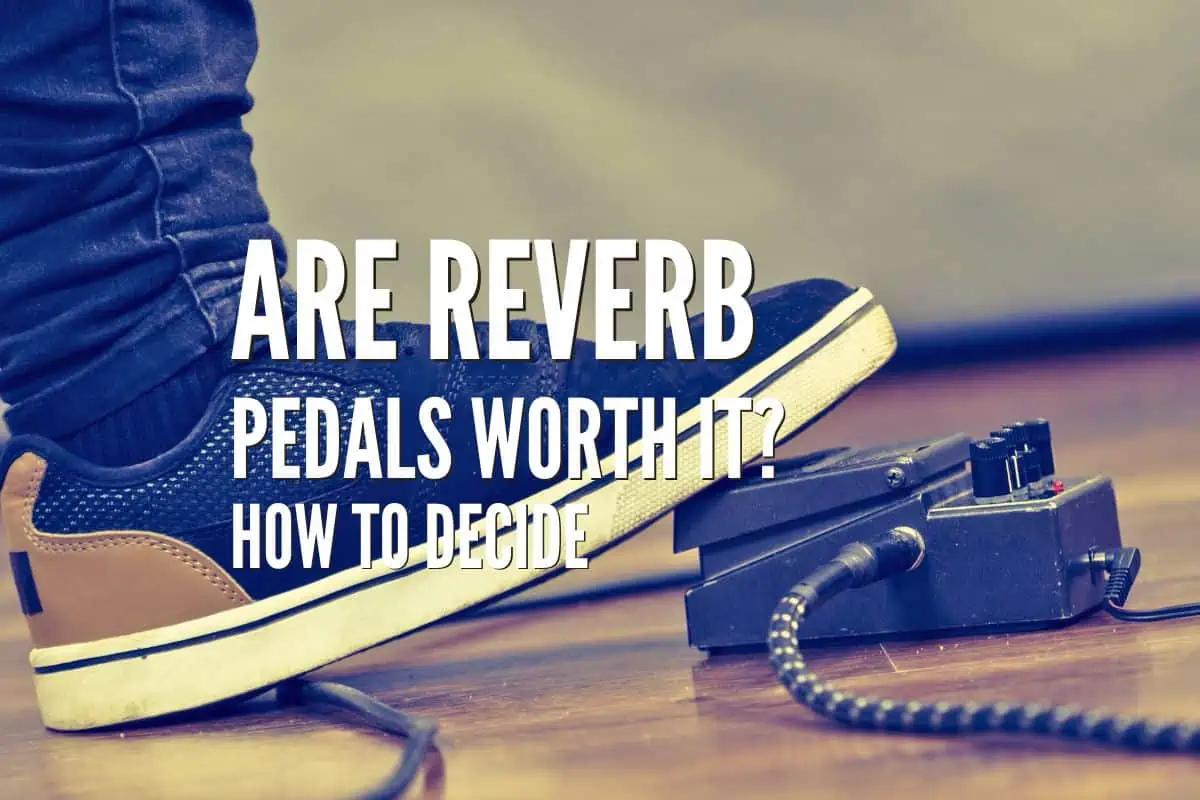As guitar lovers, we’re always on the hunt for cool ways to boost our sound and let our creativity shine. And that often brings us to a common roadblock – figuring out if investing in a reverb pedal is really worth it.
Reverb pedals are worth it if you’re seeking to enhance your sound and add depth to your music. They open a world of creative possibilities, allow you to mimic different sonic environments, and help to elevate your playing style. However, they should be used thoughtfully to avoid muddying your sound.
In this post, I’m going to dig into all things reverb pedal – what they do, why they’re cool, and how they can take your sound to the next level. Plus, I’ll throw in some handy tips on picking out the reverb pedal that really vibes with your style and needs.
What Do Reverb Pedals Do?
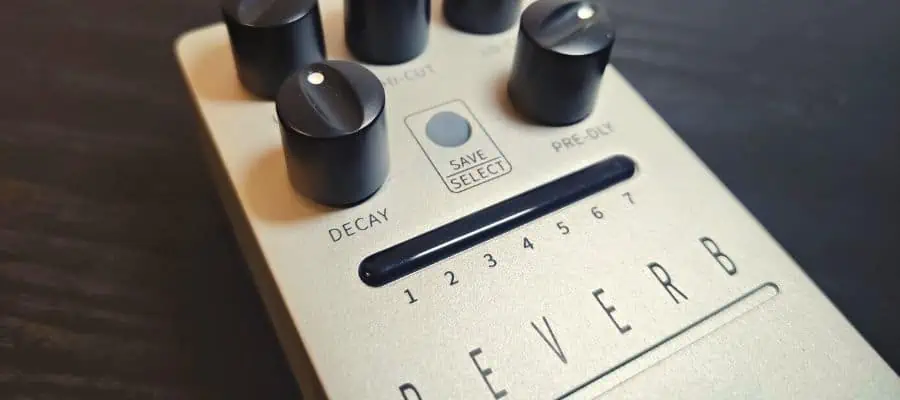
In the simplest terms, reverb pedals are devices that add an echo-like effect to your guitar sound, creating an ambiance that can transport your listeners to different sonic landscapes.
There are several types of reverb pedals, each with its unique sound and ambiance. Let’s take a quick tour:
- Spring reverb: This is the granddaddy of all reverb types, originally found in vintage amps. It creates a lively and bouncy reverb that’s perfect for surf rock or old-school blues.
- Plate reverb: This type creates a smooth, high-fidelity reverb effect that’s great for vocals but also works well with guitars. Think of it as a shiny, polished echo.
- Hall reverb: As the name suggests, this reverb makes it sound like you’re playing in a large hall or cathedral. It’s perfect for creating a sense of grandeur and space.
- Room reverb: This is a more subtle effect that mimics the natural echo you’d hear in a small to medium-sized room. It’s great for adding a touch of realism to your sound.
- Modulated reverb: This type adds a swirling, dreamy quality to the reverb effect. It’s perfect for creating ethereal, ambient soundscapes.
Some popular reverb pedals that showcase these effects include the Strymon BigSky (a multi-reverb powerhouse), the Boss RV-6 (a versatile and affordable option), and the Electro-Harmonix Holy Grail (known for its divine spring reverb).
For more Reverb pedals check out my article The Best Reverb Pedals You Can Get
To truly understand the magic of reverb pedals, you need to hear them in action. Check out this video that shows a variety of reverb pedals and provides a sampling of the range of sounds these little boxes can produce!

Why Do You Need a Reverb Pedal?
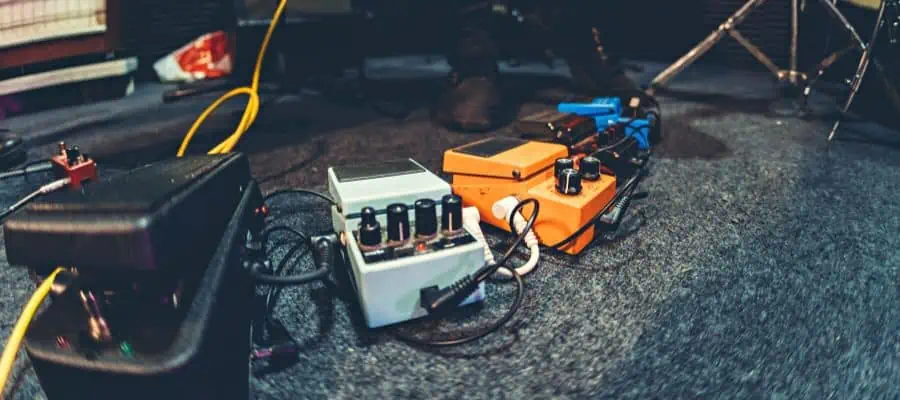
Now that you know what a reverb pedal does, you might be wondering: why should I get one? Well, there are several reasons why a reverb pedal can be a valuable addition to your guitar rig:
- Depth and dimension. A reverb pedal can add a sense of depth and space to your sound, making your guitar feel like it’s part of a larger, more immersive sonic landscape.
- Tone enhancement. By creating different moods and atmospheres, a reverb pedal can enhance your guitar tone and make your playing more expressive and creative.
- Covering up mistakes. Let’s face it, we all make mistakes when we play. A touch of reverb can help smooth over any minor flubs and keep the overall performance sounding solid.
- Filling in the gaps. If you’re playing solo or in a small ensemble, a reverb pedal can help fill in the gaps and make your sound fuller and more complete.
What Are the Drawbacks of Reverb Pedals?
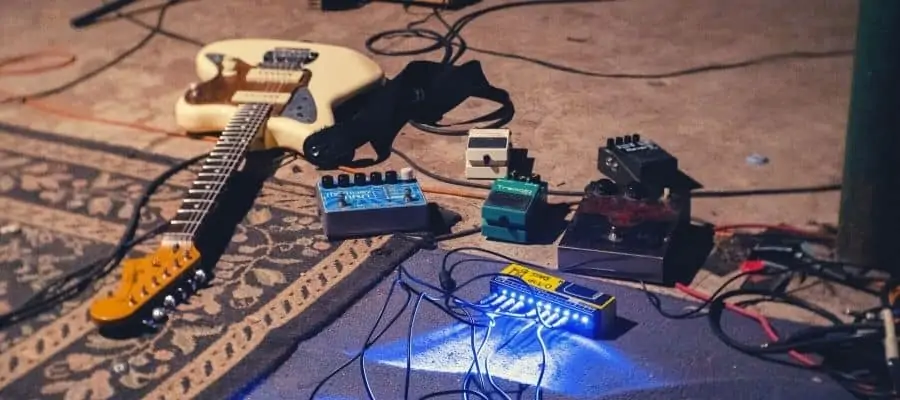
Like any piece of gear, reverb pedals come with their potential downsides. Here are a few things to keep in mind:
- Cost and space. High-quality reverb pedals can be pricey, and they also take up valuable real estate on your pedalboard.
- Complexity. With all their knobs and settings, reverb pedals can be a bit daunting to set up and adjust, especially for beginners.
- Overuse. It’s easy to get carried away and drench your sound in reverb, but too much of it can make your playing sound muddy and indistinct.
- Tone masking. While reverb can enhance your tone, it can also mask it if used excessively. It’s important to strike a balance so your original tone and style can shine through.
But don’t worry, with a bit of practice and experimentation, you can easily avoid these pitfalls and make the most of your reverb pedal.
How to Choose the Right Reverb Pedal for You?
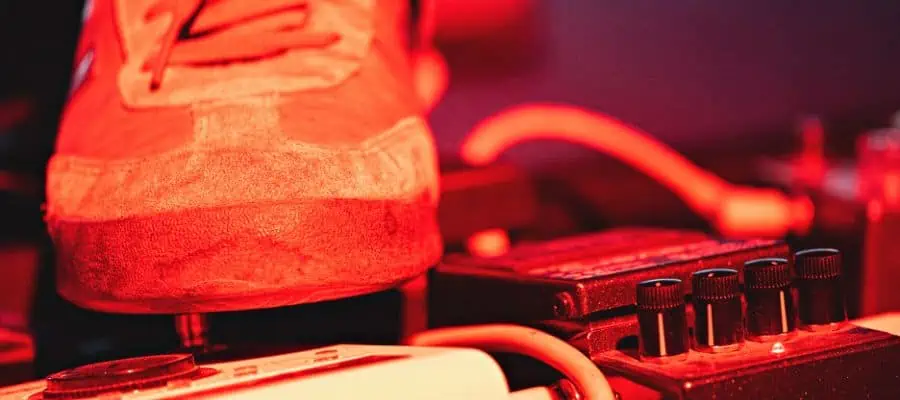
Choosing the right reverb pedal is a personal journey. It depends on several factors, including your budget, space, skill level, musical genre, style, goals, existing gear, and personal taste.
Understand Your Musical Needs
The first step in selecting the right reverb pedal is understanding your musical needs. Are you playing grungy rock, dreamy pop, or sultry blues? Each genre has its distinct sonic characteristics, and your reverb can help to highlight those.
It can also help if you think about the locations you usually play. A compact coffee shop gig may call for a different reverb type than a stadium concert. Most importantly, visualize the sound you want to create.
Technical Specifications and Features
It’s also essential to understand the technical aspects of a reverb pedal. Here are a few features that can affect the final sound:
- Decay: How long the reverb lasts
- Tone: Controls the color of the reverb
- Pre-Delay: The gap between the original sound and the reverb
- Mix: Balances the original sound and the reverb
Price and Value for Money
Prices of reverb pedals vary greatly, from budget-friendly to high-end. It’s essential to balance your budget with your needs.
Remember, a higher price tag does not always mean a better fit for your music. The right pedal provides a balance of quality, durability, and functionality at a price you are comfortable with.
Try Before Buying
If possible, always try before you buy. This gives you a hands-on feel for the pedal’s features and sound. Listen to the subtleties, tweak the settings, and see how it complements your playing style.
Remember, there’s no one-size-fits-all answer here. The best reverb pedal for you is the one that helps you achieve your musical vision and brings you joy every time you step on it.
Conclusion
So, are reverb pedals worth it? The answer, in my opinion, is a resounding yes. They offer a world of creative possibilities, enhance your sound, and can even cover up minor mistakes.
For beginner guitar players looking to expand their sonic palette and inject some creativity into their playing, a reverb pedal can be a game-changer.
So, why not give it a shot?
Try out different pedals, experiment with different settings, and most importantly, have fun with it. After all, making music is all about exploration and self-expression. Happy playing!
If you found this article useful, you may want to save this pin below to your Guitar board.
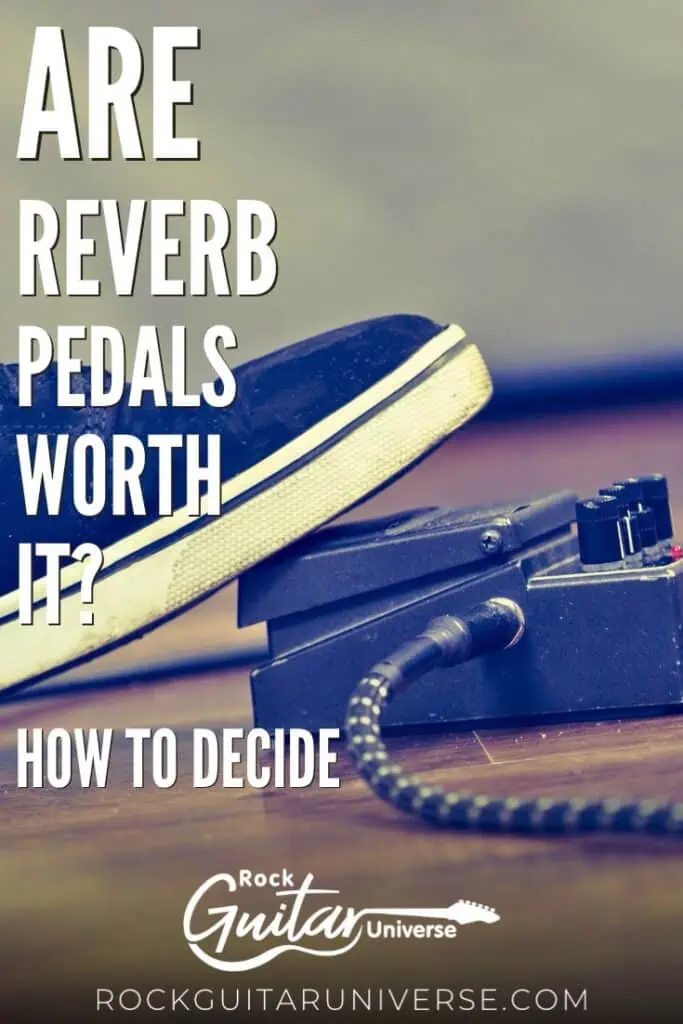
Recent Posts
When learning new songs have you noticed that some of the chord sequences sound really good? But when you tried to come up with your own chord sequence, or as we call it chord progression, you found...
Some guitarists insist on buying an expensive amplifier with their electric guitar. They assume that this is a must for every type of guitarist out there. However, in some situations, this isn’t...

